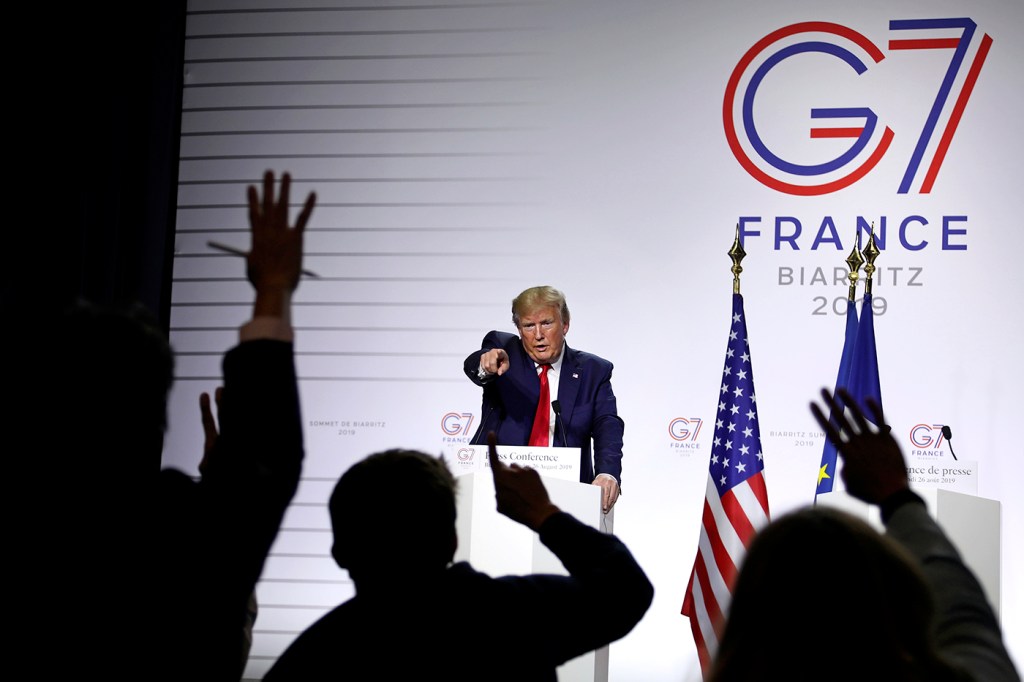What’s really at stake in the trade war between the US and China?

After a weekend during which leaders in the United States and China promised to impose stiff new tariffs on each other’s goods—only to show signs of reversing those threats days later—the trade war between the countries with the world’s largest two economies seems to have cooled, for now.

William Dickens, University Distinguished Professor of Economics and Social Policy. Photo by Matthew Modoono/Northeastern University
The tariffs that U.S. President Donald Trump and Chinese President Xi Jinping imposed upon each other’s countries likely won’t have had a huge effect on either economy, according to William Dickens, an economics professor at Northeastern University. But, he says, the political brinkmanship behind this trade war of words could.
Earlier this month, Trump imposed a 10 percent tax on $300 billion worth of Chinese goods. On Friday, the Chinese State Council retaliated, announcing that it would impose new tariffs on $75 billion worth of U.S. goods, and resume the tax on American cars. Trump raised the stakes again just 12 hours later, bolstering the existing tariffs on $250 billion worth of Chinese goods, and raising the new 10 percent tax to 15 percent. Trump also ordered U.S. companies that do business or are located in China to pull out of the country.
Then, on Monday, what appeared to be a reversal: Trump announced during an interview at the Group of 7 summit in France that the U.S. and China would instead begin negotiations, and he expected that the two countries would “make a deal.”
Dickens, University Distinguished Professor of Economics and Social Policy, says that the goods each country targeted to levy “are more politically important than they are economically important,” adding that in general he “wouldn’t have expected this to have an effect on the economy.”
China, for example, levied an extra 5 percent tariff on U.S. soybeans not because it would devastate the U.S. economy, but in an effort to pinch the Midwestern farmers who are part of Trump’s political base, Dickens says.
“China is trying to make that base feel the pain in order to hurt the re-election chances of this administration,” Dickens says. “That gives China the upper hand in negotiations.”
Political maneuvering aside, the swift back-and-forth nature of the weekend’s trade talks created uncertainty for investors that resulted in dramatic fluctuations in the U.S. stock market. On Friday, the Dow Jones Industrial Average—a stock market index that indicates the value of 30 publicly owned companies in the U.S.—fell 623 points. Stocks rose on Monday, after Trump’s announcement at the G7 summit that the two countries would reopen negotiations.
This uncertainty over trade tariffs “is a bigger problem than the actual tariffs,” Dickens says, because it “makes business owners reluctant to invest” in the U.S. economy.
“You have all these tariffs on goods and you don’t know if they’re going to be reversed at any point, that’s not an incentive to build a plant to manufacture that good,” Dickens says.
What happens next in the U.S.-China trade war is anyone’s guess.
“I have a very hard time predicting this administration,” Dickens says.
For media inquiries, please contact Marirose Sartoretto at m.sartoretto@northeastern.edu or 617-373-5718.





